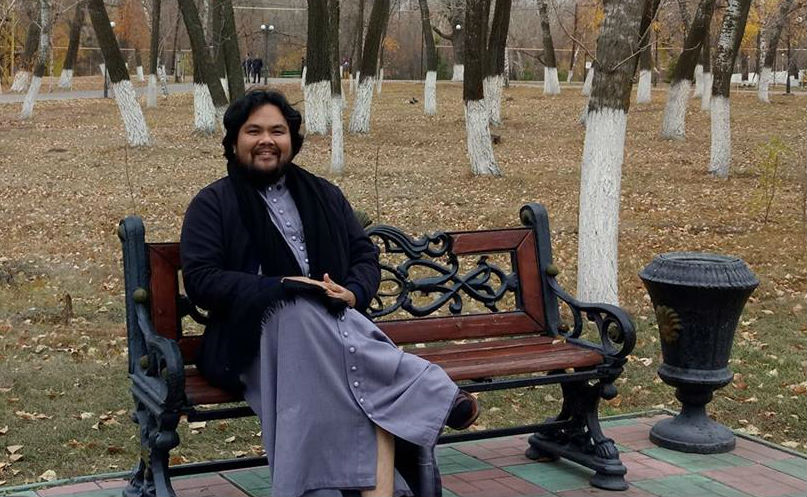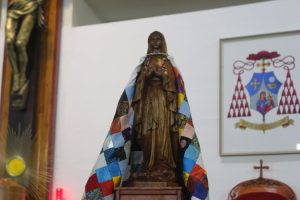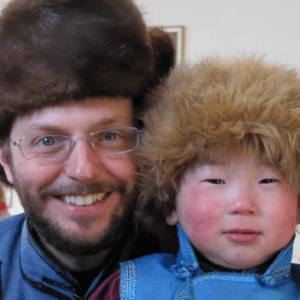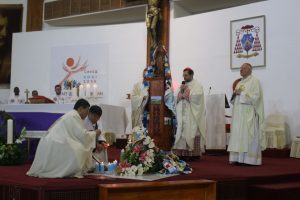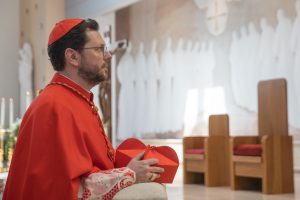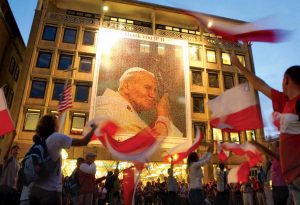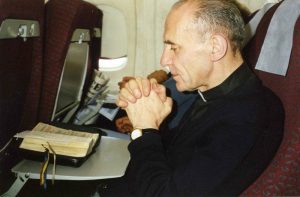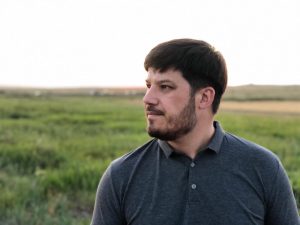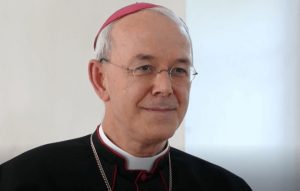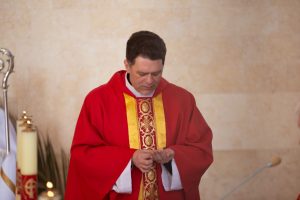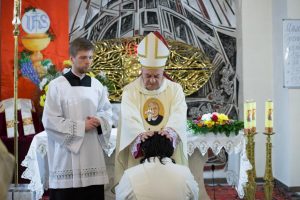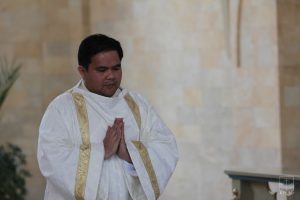So we’ve gotten to the point where Patrick went to Kazakhstan. But, if you remember, he did not want to come here at all. Why in the end, in a week at this time, he will be ordained to the dignity of the presbyter in Kazakhstan?
If you have just discovered this cycle, then start from the beginning, the second and the third parts.
Part 4. Kazakhstan
– You said that you were leaving Armenia with tears in your eyes. Was it only because you felt it was your vocation to be there or you were afraid to go to Kazakhstan?
– Armenia had become for me the place where my heart was drawn. But there was no way to scare me with Kazakhstan. Although I knew very little about this country, of course. In the Philippines, no one has any idea what kind of country it is and where it is located. But, if you remember, I have already mentioned that it is interesting for me to go to precisely such places that nobody knows about. Particularly about Kazakhstan and the neighboring countries people in the world don’t know much. And I like to work where there are few priests and religious. It was the desire to work in such a place that I came to Russia with.
– A new, unfamiliar country … What helped you adapt to the new living conditions? Or who did?
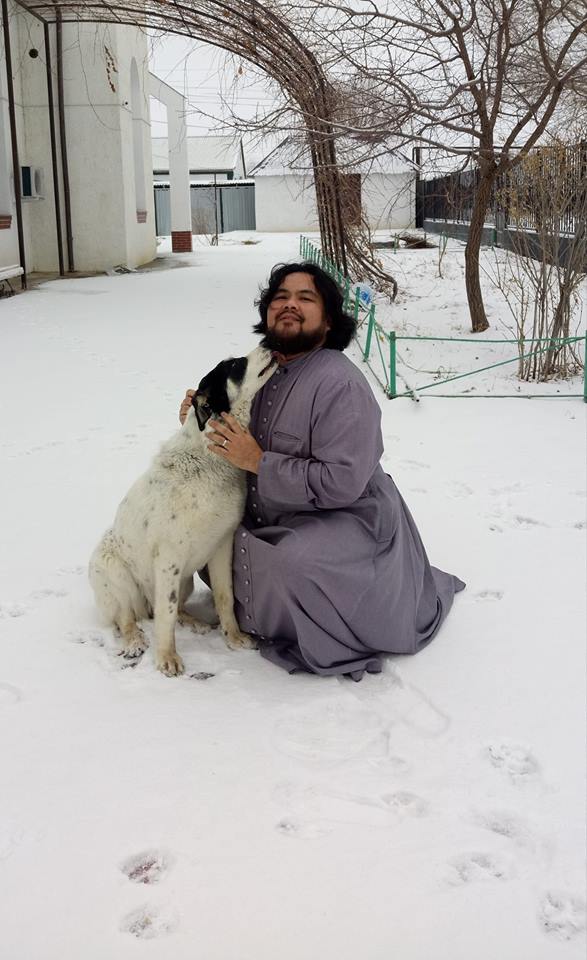
– First, God. Everything is possible through His grace. Of course, God helps us through other people. One of those people was Fr. Peter Pytlovany, the former seminary rector in Karaganda, who played a big part in my life in Kazakhstan. He is a very open person, and he is very dear to me. He trusted me, and I was open with him too, I talked to him about everything without fear. I shared my experience of studying in my homeland comparing it to studying at the seminary here in Kazakhstan. Another person through whom the Lord helped me was the spiritual father of the seminary, Fr. Peter Sakmar. From the very beginning he asked me if I would like to stay here.
– You weren’t afraid of an unknown country, but now you are here and you know how severe are the weather conditions sometimes. Can you suggest some life hacking to adapt to such conditions?
– It was interesting to me as a person who comes from a hot country, not even from a warm one. It is very hot for me here even in the severe Kazakhstan frosts. While at the Divine Liturgy everyone was wearing warm coat and boots, I could not get rid of the feeling that it was very hot. It used to surprise everyone very much. But it was so indeed, I just sweated all over my body. If you are cold, you can just dress up warmly. But those who suffer from the heat just need to get used to it. That was my only option. I think that it’s all about the love that local people give us, foreigners. The beauty of the country will not mean anything if people who live in it are bad. Of course, there are good and bad people everywhere. But when you are surrounded by good people, it greatly decorates a country or a city in your eyes. And that love, coming from others, has become for me a kind of greenhouse. The lines from the song spin in my head: “And love is warmer than wheat …”.
– How did you decide to stay in Kazakhstan? And why you chose Atyrau?
– I studied at the Karaganda seminary for a year. During this time, communication with the bishop in Georgia had somewhat weakened. And I began to feel love for Kazakhstan. I was asked more than once if I wanted to serve here. But I was preparing for service in Armenia. Then the Apostolic administrator in Atyrau, Fr. Dariusz Buras invited me to serve in the west of Kazakhstan. Then I decided to pray. And this is one of the greatest miracles in my life. I was praying in a chapel in Karaganda. And on the very first day I asked the Lord to give me some kind of a sign on what to do. On the first day, nothing happened, on the second one, silence too, and on the third day, completely unfamiliar words came to my head that sounded like ‘Keldinis’. Since these words did not seem to make any sense to me, I decided to ignore them. On the fourth day, there was silence again, and on the fifth day, those words again sounded in my head, but this time more clearly. Then I typed into the search engine on the Internet this sound and I found a bit different expression. It turned out that in the Kazakh language it sounded like “Kosh Keldinis”. And I found the translation: “Welcome.” Then I hurriedly went to the rector to talk to him about such a revelation and I told him about my research. He decided to call his friend who is fluent in Kazakh, and she said that it means not just “Welcome!”, but “Finally, you came, I’ve been waiting for you for a long time”. My emotions at the moment I heard the meaning of those words were unspeakable. I still think about it all the time. Humanly, I was afraid to go to Kazakhstan. And now I realize that God wanted me to come here. And he spoke to me not in any other way, but in Kazakh, and moreover, given the inclination of the Filipinos to reduce expressions in oral speech, He didn’t address me with the complete phrase “Kosh Keldinis”, but briefly “Keldiniz”. God is intelligent and speaks to us in the style that we know. And I realized that the Lord had been waiting for me here for a long time. I even felt pain. I did not need to be afraid. God is near and has already prepared a place for me here for a long time. He has been waiting for me for a long time. Of course, the abbot of my monastery decided that my ministry would be useful here, so he approved the idea to continue my ministry in Kazakhstan.
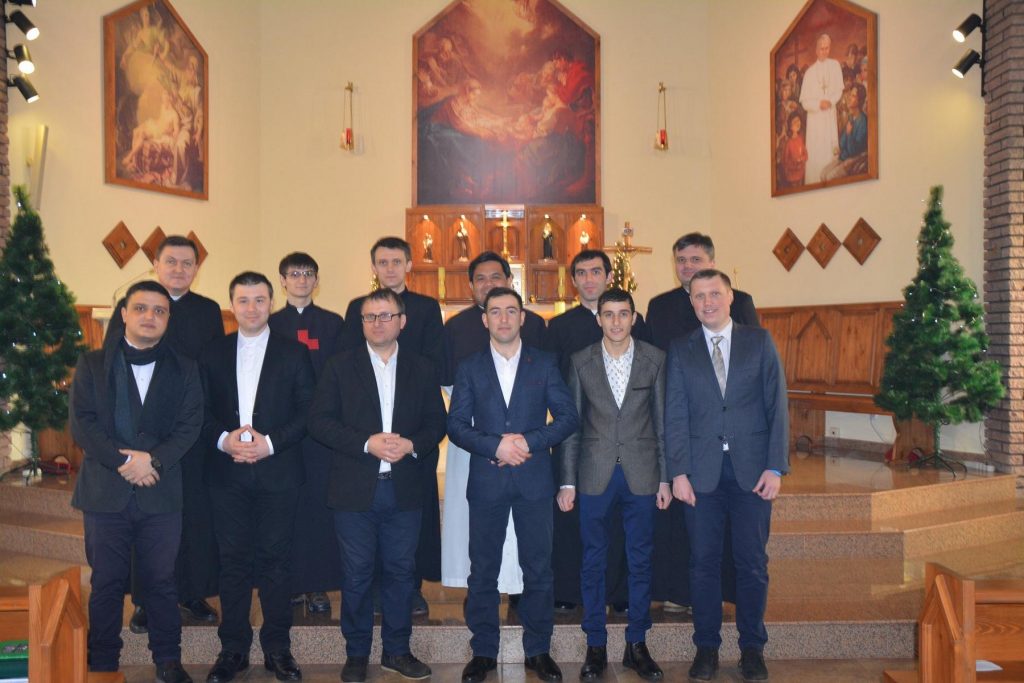
– Are there already any plans regarding which parish you will serve in?
– At first I spent about three weeks in Atyrau, a city that is located partly in Europe, partly in Asia. Then Fr. Dariusz sent me to Kulsary, which is three hours drive from Atyrau. In the west of Kazakhstan there are very few parishioners, and the churches are far from each other. There are about 50 thousand inhabitants in this town, and about 17 people in the parish. Sometimes there are only three to five people participating in the Holy Mass. One day the parish priest even said that maybe there is no need to stay here because of such a small number of people. But I have different understanding of what the mission is. Our task is simply to live with these people and give a testimony by our example. I do not go to people with the idea that they should become Catholics. Well, it would be good, of course, but it doesn’t depend on me. It is important for me to live with these people, so that they just see an example of my life. After all, our ministry is not only for believers, but also for everyone God sends our way.
– Do you manage to reach an understanding with the local people?
– Very simple people live here. As far as I can see, many of them keep the household. I would like to keep the household as well, for it could be a good testimony. People will see that I am a priest, but I live the same simple life, I have the same concerns as they do. Then people will understand that we are on the same level with them, not any higher. Moreover, having a farm can be a good reason to have a common topic in conversations. It’s easier to get in touch with people, grazing animals, for instance. Besides, I resemble a Kazakh in my appearance, and they are often surprised that I am dark, not light-skinned, but a Catholic nonetheless.
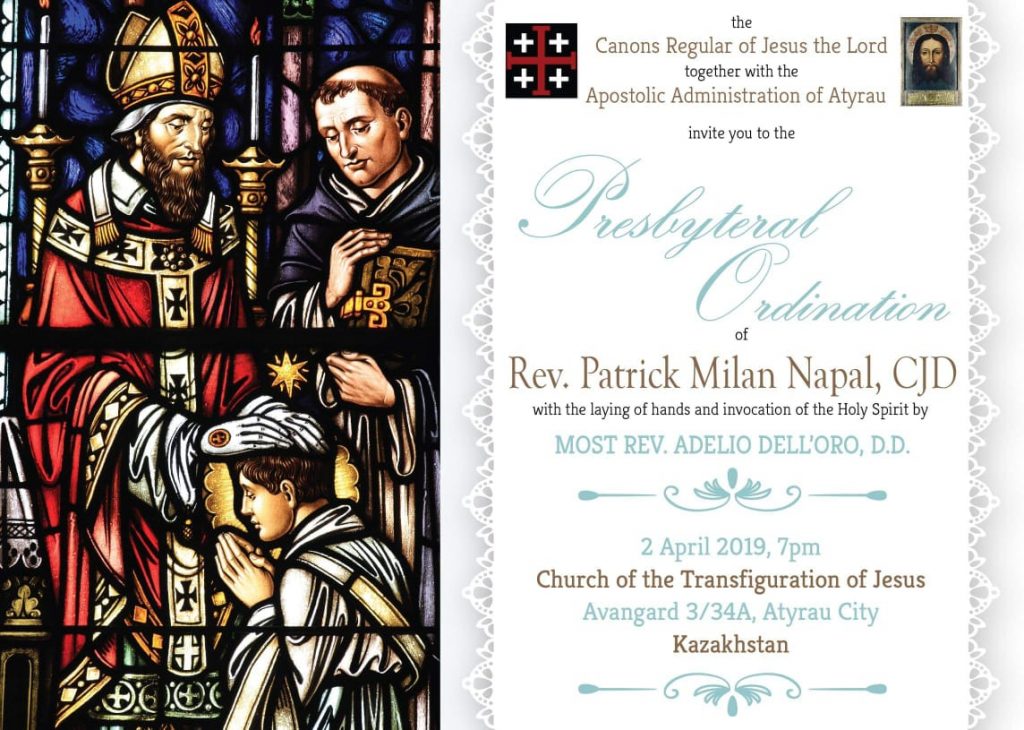
On April the 2nd at 7 pm in Atyrau took place the event, for which Patrick has been preparing his whole life, and we for the last four weeks. What Patrick will have to do in his new ministry and whether he, such a fearless God’s wanderer, is going somewhere else you can get to know already.
